How to Protect Yourself from coronavirus disease 2019 (COVID-19).
24 Mar


Posted By
0 Comment(s)
6666 View(s)
Older adults and people who have severe underlying medical conditions
like heart or lung disease or diabetes seem to be at higher risk for developing more serious complications from COVID-19 illness.
Coronavirus is for real, very dangerous, very contagious, and kills.
Where to get Covid-19 vaccination in Uganda, please check with Ministry Health, Uganda.
Coronavirus is for real, very dangerous, very contagious, and kills.
Let us immunise.
Where to get Covid-19 vaccination in Uganda, please check with Ministry Health, Uganda.
Symptoms of Coronavirus
Reported illnesses have ranged from mild symptoms to severe illness and death for confirmed coronavirus disease 2019 (COVID-19) cases.
These symptoms may appear 2-14 days after exposure (based on the incubation period of MERS-CoV viruses).
- Fever
- Cough
- Runny nose
- Sore throat
- Shortness of breath
When to Seek Medical Attention
If you develop emergency warning signs for COVID-19 get medical attention immediately. Emergency warning signs include*:
- Trouble breathing
- Persistent pain or pressure in the chest
- New confusion or inability to arouse
- Bluish lips or face
*This list is not all inclusive. Please consult your medical provider for any other symptoms that are severe or concerning.
Know How it Spreads
- There is currently no vaccine to prevent coronavirus disease 2019 (COVID-19).
- The best way to prevent illness is to avoid being exposed to this virus.
- The virus is thought to spread mainly from person-to-person.
- Between people who are in close contact with one another (within about 6 feet).
- Through respiratory droplets produced when an infected person coughs or sneezes.
- These droplets can land in the mouths or noses of people who are nearby or possibly be inhaled into the lungs.
Take steps to protect yourself
Clean your hands often
- Wash your hands often with soap and water for at least 20 seconds, especially after you, have been in a public place, or after blowing your nose, coughing, or sneezing.
- If soap and water are not readily available, use a hand sanitizer that contains at least 60% alcohol. Cover all surfaces of your hands and rub them together until they feel dry.
- Avoid touching your eyes, nose, and mouth with unwashed hands.
Avoid close contact
- Avoid close contact with people who are sick
- Put distance between yourself and other people if COVID-19 is spreading in your community
Take steps to protect others
Stay home if you’re sick
- Stay home if you are sick, except to get medical care.
Cover coughs and sneezes
- Cover your mouth and nose with a tissue when you cough or sneeze or use the inside of your elbow.
- Throw used tissues in the trash.
- Immediately wash your hands with soap and water for at least 20 seconds. If soap and water are not readily available, clean your hands with a hand sanitizer that contains at least 60% alcohol.
Wear a facemask if you are sick
- If you are sick: You should wear a facemask when
you are around other people (e.g., sharing a room or vehicle) and before
you enter a healthcare provider’s office. If you are not able to wear a
facemask (for example, because it causes trouble breathing), then you
should do your best to cover your coughs and sneezes, and people who are
caring for you should wear a facemask if they enter your room.
- If you are NOT sick: You do not need to wear a facemask unless you are caring for someone who is sick (and they are not able to wear a facemask). Facemasks may be in short supply and they should be saved for caregivers.
Clean and disinfect
- Clean AND disinfect frequently touched surfaces daily. This includes tables, doorknobs, light switches, countertops, handles, desks, phones, keyboards, toilets, faucets, and sinks.
- If surfaces are dirty, clean them: Use detergent or soap and water prior to disinfection.
Credit to CDC


-260x260w.png)





-260x260w.jpg)









-260x260w.jpg)



-260x260w.jpg)
































-190x190w.png)





-190x190w.jpg)











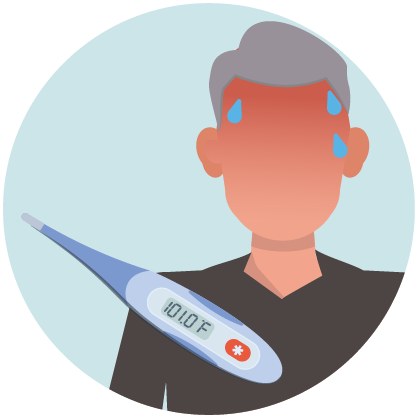
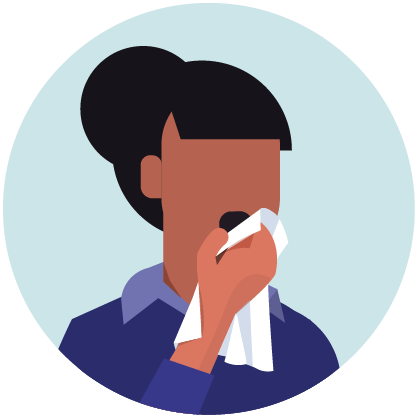
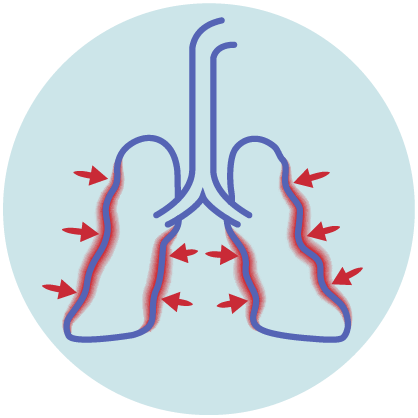
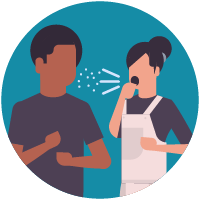
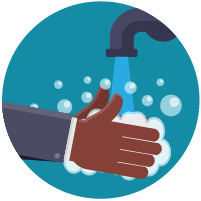
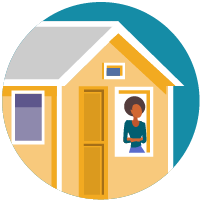
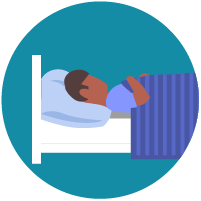
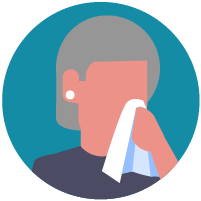
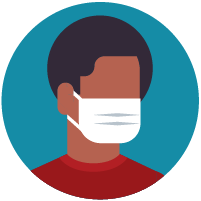
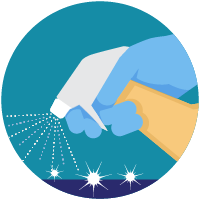
Leave a Comment